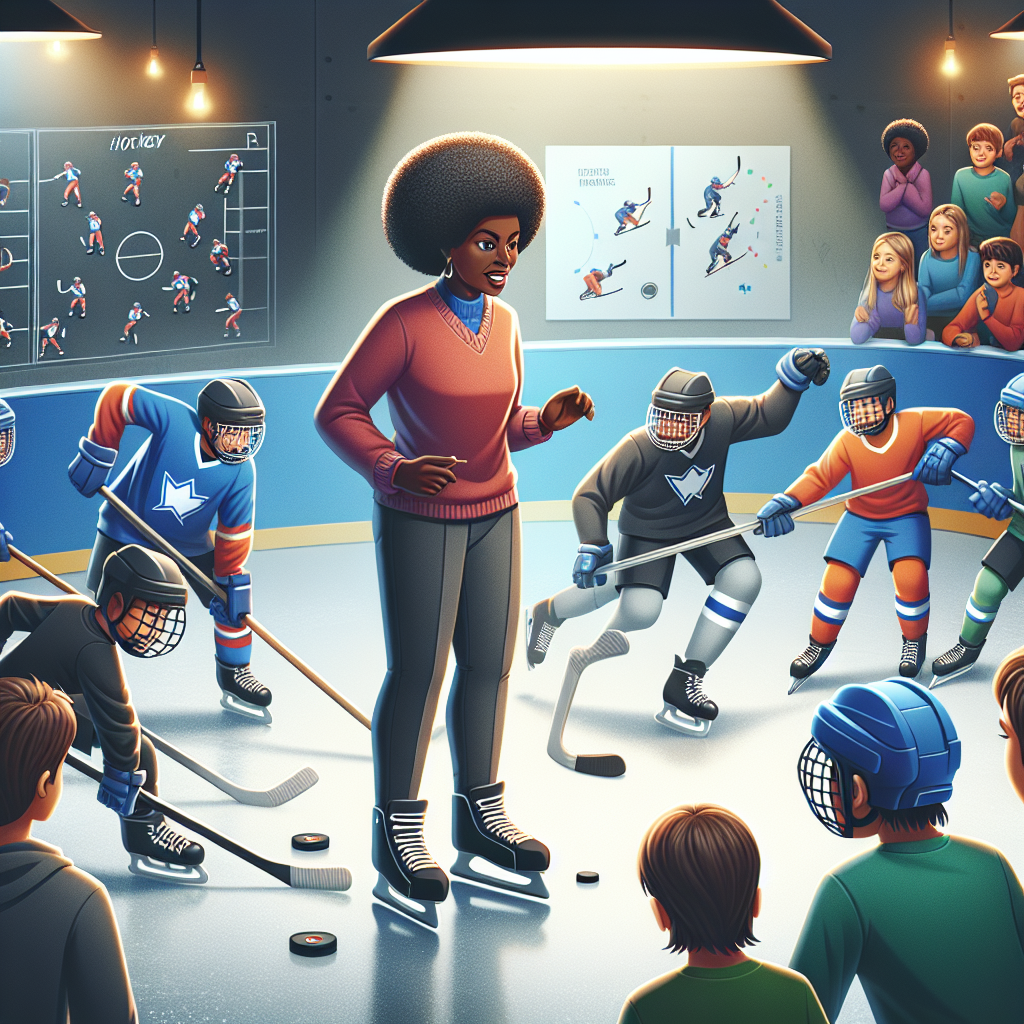How to Evaluate a Youth Hockey Coach’s Development Philosophy and Teaching Methods
Choosing the right youth hockey coach for your child can significantly impact their development, enjoyment, and success in the sport. One key component of this process is understanding the coach’s development philosophy and teaching methods. A thorough hockey coaching evaluation is essential to ensure that the coach’s approach aligns with your child’s needs and your family’s values. In this blog post, we’ll discuss how to effectively evaluate a youth hockey coach, highlighting essential points of consideration in their teaching methodologies.
1. Understand Development Philosophy
Every coach has a unique development philosophy that governs how they train and guide young athletes. To evaluate a coach’s philosophy:
- Ask Direct Questions: What is their approach to developing skills? Do they focus on fundamentals or advanced techniques? Understanding their priorities will give you insight into their philosophy.
- Focus on Player Development: A good coach prioritizes individual growth over winning games. Look for those who aim to enhance not just technical skills but also life skills such as teamwork, discipline, and resilience.
- Review Track Record: Examine past coaching experiences and success stories. A coach with proven success in promoting a positive learning environment is more likely to support your child’s growth.
2. Observe Coaching Methods
Beyond philosophy, the actual methods used in practice can tell you a lot about a coach’s effectiveness. When assessing coaching methods, consider the following:
- Practice Structure: Are practices well-organized with clear objectives? Good coaches establish a plan and stick to it, ensuring that practices are productive and engaging.
- Feedback Mechanism: How does the coach provide feedback? Constructive, consistent, and positive feedback creates an environment conducive to learning. Evaluate whether the coach offers individual attention alongside team instructions.
- Adaptability: Observe how the coach adjusts their methods based on the players’ needs. A flexible coach can modify drills and strategies to suit the varied skill levels within the team.
3. Evaluate Communication Style
Communication is fundamental in coaching. Effective coaches communicate clearly and respectfully. When assessing a coach’s communication style:
- Clarity: Does the coach explain drills and strategies in a manner that all players can understand? Clear communication ensures that players can grasp key concepts quickly.
- Encouragement: Look for a coach who motivates their players. Encouragement fosters confidence and can significantly enhance performance on and off the ice.
- Open Dialogue: A good coach promotes an environment where players feel comfortable asking questions. Evaluate whether the coach is approachable and willing to listen.
4. Assess Practice Environment
The practice environment can have a profound effect on player development. Ensure the following elements are present:
- Positive Atmosphere: Is the practice environment fun and engaging? Coaches should create a welcoming atmosphere that encourages learning and camaraderie among players.
- Safety First: Evaluate the coach’s commitment to safety. An effective youth hockey coach prioritizes player safety and ensures that all activities are conducted in a risk-free manner.
- Inclusivity: Check if the coach fosters a culture of inclusion among players regardless of skill levels. This creates a balanced team and positive interactions that promote respect and teamwork.
5. Gather Feedback from Parents and Players
One of the best ways to gain insight into a coach’s methods is to gather feedback from other parents and players. Consider these steps:
- Parent Meetings: Attend any parents’ meetings or forums associated with the team to hear perspectives from others. Parents often share thoughts regarding a coach’s effectiveness, communication, and commitment to player development.
- Player Insights: Talk with your child about their experiences with the coach. Are they enjoying their training? Do they feel supported? A player’s firsthand feedback is invaluable.
- Online Reviews: Look for ratings or reviews on dedicated sports forums or community boards. This can provide a broader perspective on the coach’s reputation and effectiveness.
Conclusion
A comprehensive hockey coaching evaluation involves understanding a coach’s development philosophy, observing their teaching methods, assessing communication styles, evaluating practice environments, and gathering feedback from those involved. By focusing on these critical aspects, you can ensure that the youth hockey coach you choose is well-equipped to nurture your child’s hockey skills, character, and love for the game. Remember, a supportive and effective coach will positively impact your child’s journey in hockey, setting them up for success both on and off the ice.



